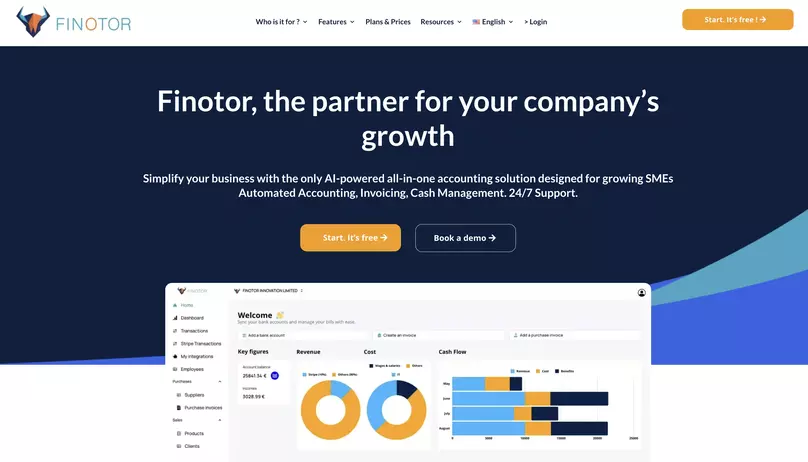Contents
Struggling to manage every aspect of your online store? 😫 Let’s face it— E-commerce account management isn’t just helpful—it’s essential in today’s competitive landscape. We’ll explore how streamlining your e-commerce processes can enhance customer support while refining product listings. Here’s the thing— focusing on these areas helps simplify operations boost profits. Ready to transform your e-commerce account give your online sales a serious boost? 🚀
Table of contents for you 😉
- Understanding Ecommerce Account Management Fundamentals
- Key Components of Effective Account Management
- Platform-Specific Management Approaches
Understanding Ecommerce Account Management Fundamentals
Let’s break down the bedrock principles and why account management holds strategic weight in the digital marketplace 🚀; Think of it as the linchpin ensuring everything runs smoothly.
- Product Listing Management: Account managers are like meticulous curators—they guarantee product listings across platforms are accurate and engaging. This entails fine-tuning descriptions, visuals and keywords to amplify visibility and sales. Take Sarah’s case who witnessed a sales boost after revamping her product listings!
- Customer Relationship Management: They’re also relationship builders who nurture customer interactions addressing inquiries and resolving problems. Cultivating solid relationships guarantees customer satisfaction and allegiance; consider it turning customers into loyal advocates 🗣️.
- Marketing Campaign Execution: Account managers implement and oversee marketing campaigns using data insights to refine strategies and maximize ROI. This spans social media marketing search engine optimization and content creation. Take John’s approach an account manager leveraged data to tweak a social media campaign which drove 40% spike in engagement.
- Order Fulfillment Oversight: They oversee order fulfillment pipeline guaranteeing timely and accurate delivery of products. This encompasses inventory management and coordinating with logistics partners to streamline efficiency. It’s all about getting products delivered to the customer without a hitch 📦.
- Data Analysis and Reporting: Account managers analyze sales data customer behavior and market patterns to identify opportunities for expansion. They provide strategic recommendations to elevate business results. Data-driven decisions are key 🔑.
In short the duties of ecommerce account managers are diverse yet important to the prosperity of online businesses. They are wearing multiple hats 🎩.
Let’s look at how the connections between customer loyalty sales growth and smooth operations. Account management is crucial for customer delight and it drives revenue; but how exactly?
Ecommerce account management entails managing and optimizing a business’s online sales securing the smooth operation of the online store and enhancing customer experience. This includes revenue escalation and digital marketing services strategies. Understanding the financial side is important—which is why teaming up with an accountant for ecommerce can be a wise move 💡.
An ecommerce manager oversees website upkeep improving user experience overseeing marketing services campaigns analyzing performance inventory management and customer care—however ignoring the financial angle can be harmful as shoddy ecommerce accounting can drag down your business. Don’t let your finances be a blind spot 🙈.
Key Components of Effective Account Management
Product Listings and Order Operations
Let’s examine optimizing product presentation and inventory synchronization across platforms. But how exactly do listing strategies differ between Shopify and Amazon? What tools guarantee inventory precision? 🤔
Well, here’s the thing:
Optimizing product listings involves tailoring strategies to each platform’s quirks. Shopify notably offers extensive control over product presentation allowing for personalized branding; Amazon meanwhile uses a standardized format optimized for search performance and conversion. Here’s an analogy: Shopify acts like your custom storefront while Amazon is a bustling marketplace.
Question to improve your Ecommerce: Which e-commerce platform offers the best SEO and order processing features?
If you run an online store, as many do, choosing the right platform can make or break your growth. So keep a close eye on this point.
Whether it’s SEO tools that improve your visibility on Google, or order management integration that streamlines operations, every feature, every element of your value chain counts, because you don’t want to see your project collapse, I imagine.
So below you’ll find a detailed comparison of the leading e-commerce platforms – Shopify, Amazon, Etsy and WooCommerce – to name just the best-known and most secure 💡
| Platform | SEO Tools | Fulfillment Integration |
|---|---|---|
| Shopify | Offers broad SEO optimization including meta tags, page content and customizable URLs, enabling personalized branding. | Integrates with various fulfillment services and apps, delivering real-time inventory synchronization with other selling online channels. |
| Amazon | Focuses on keyword optimization in titles, descriptions and attributes. Algorithm favors relevance and conversion. | Offers Fulfillment by Amazon (FBA) for streamlined operations, requiring precise stock management to avoid disruptions. |
| Etsy | Limited customization options. Focuses on niche handmade and vintage items. | Relies on seller’s own fulfillment or third-party services. |
| WooCommerce | Highly customizable with plugins for advanced SEO capabilities. | Flexible integration with various fulfillment options including self-fulfillment and third-party logistics (3PL). |
Now, fine-tuning fulfillment processes through automation and logistics partnerships is the aim. But which KPIs truly gauge fulfillment success? How to strike a balance between cost and delivery speed? 🚀
Consider this:
Ecommerce operations running like clockwork are important for success. The on-time delivery rate tracks the percentage of orders delivered within the promised timeframe. A strong rate indicates solid management and heightened customer satisfaction. Here’s an eye-opener: Global ecommerce sales reached $146.9 billion in 2022—a notable 13.8% year-on-year jump. 📈
Customer Engagement Strategies
Implementing omnichannel communication frameworks for superior service is key. Which channels generate top-tier engagement rates? How to personalize interactions at scale? 💡
Implementing an omnichannel communication framework proves crucial for superior customer service. Social media platforms like Facebook Instagram and TikTok deliver impressive engagement through visuals and direct interactions. Email marketing allows for personalized messages generating high engagement rates. Take Lush Cosmetics, for instance excels at omnichannel engagement using social media email and in-store experiences to craft a cohesive brand experience.
To effectively boost customer retention for online businesses consider these proven tactics.
- Implement Digital Loyalty Programs: Digital loyalty programs such as digital stamp cards can be customized with text images and colors building connections with customers through targeted messages sent to their smartphones and rewarding repeat purchases.
- Offer Personalized Customer Experiences: Addressing customers’ specific needs and wants through personalized experiences can boost online conversion rates and build loyalty since frequent shoppers prefer brands that personalize their experience. Netflix’s recommendation system recommending shows based on your viewing history.
- Offrir un service client exceptionnel: Swift responses and dependable support are vital for keeping customers acting serving as the backbone of customer retention—ensuring customer satisfaction. Zappos famously excels for its exceptional customer service.
- Utilize Email Marketing and Remarketing: Sending engaging emails and implementing remarketing strategies can drive repeat purchases and keep shoppers engaged with the business reinforcing their loyalty.
- Perfect the Returns Process: Simplifying and improving the returns process can improve the customer experience making it easier for customers to return items and boosting their overall satisfaction with the business.
By focusing sharply on these strategies online businesses can enhance customer retention and foster lasting relationships. Ultimately, it’s about making your customers feel appreciated! ❤️
Leveraging data analysis to forecast buying patterns and refining marketing is a game-changer. Which metrics signal upsell potential? How to segment customers successfully? 📊
Leveraging data analysis plays a crucial part in forecasting buying patterns and refining marketing. The average order value (AOV) tracks the average amount customers spend per order. An upward trend in AOV can point to successful upsell opportunities. Customer segmentation done effectively involves grouping customers by demographics purchase history and behavior so Amazon, for example uses purchase history to recommend relevant products.
Platform-Specific Management Approaches
Crafting the right strategy for different e-commerce landscapes. Are you navigating a marketplace environment or operating your own independent storefront? The real question is—when should you prioritize Etsy over WooCommerce is key. But here’s the catch—how do Amazon’s fees eat into your profits? These are crucial considerations every seller faces.
Optimizing your e-commerce account management makes all the difference. Here’s the thing: Etsy peut être une mine d’or for crafters selling unique creations. Meanwhile if you need complete autonomy over customer data and a custom-branded journey WooCommerce might be your best bet. Savvy sellers even find that Shopify and Etsy can complement each other surprisingly well; they actually reinforce each other’s strengths.
The real challenge lies in spotting the sweet spot. How do you blend one-size-fits-all methods with custom strategies for those specialized marketplaces? What regulatory requirements directly impact your seller reputation? And how do you balance operating a presence on multiple platforms? Let’s break this down.
Finding that sweet spot between one-size-fits-all methods and custom strategies is important when dealing with niche platforms. Take WooCommerce, for instance; mastering unique accounting requirements becomes absolutely crucial—check out this article on WooCommerce accounting for practical guidance. Regardless of where you’re selling you need to adhere to consumer legal guarantees. Maintaining transparent communication regarding rankings and account suspensions is also critical to maintain stay vigilant—so make sure you’re on top of things.
Smart ecommerce account management boosts customer satisfaction and keeps that sales momentum rolling. 🚀 The key? Focus on streamlining operations—harness smartly harness data insights and tailor strategies to different platforms—think everything from mobile optimization, social media integration to those personalized customer journeys we all appreciate. Here’s the kicker: Start refining your online business today for a more rewarding future! 💰
FAQ
How are e-commerce account managers compensated?
E-commerce account managers’ compensation includes a fixed salary and a variable component. Junior profiles can anticipate an annual gross salary between $33,000 and $39,000 with a potential variable of up to $10,000.
With over 5 years of experience total compensation can range from $55,000 to nearly $83,000 depending on the industry.
What are the key skills of an e-commerce account manager?
The key skills of an e-commerce account manager encompass a broad spectrum of qualities and knowledge from customer relationship management to mastering the technical aspects of online commerce. They must forge and maintain a solid relationship with clients understanding their needs and meeting their expectations; indeed they also need to counsel clients on strategy and actions based on their goals and market specifics.
An e-commerce account manager must possess commercial technical and relational skills to thrive. They must grasp their clients’ needs propose fitting solutions and bolster their development. They should also be adept at spotting opportunities for additional sales and suggesting complementary products or services — a smart way to boost revenue.
How does a key account manager contribute to e-commerce?
A Key Account Manager (KAM) is pivotal in the commercial expansion of an online sales space particularly within an e-commerce marketplace model. They are entrusted with strategic clients due to their size and revenue generation. The KAM Marketplace underpins the commercial expansion of an online marketplace that connects buyers and sellers.
Their core tasks involve onboarding sellers by integrating their catalog on the platform and training them on using the back office. They also monitor performance by furnishing data-driven advice to optimize success on the market and suggest enhancements to elevate the platform’s performance and enrich functionalities.
What tools facilitate e-commerce account management?
A range of tools are on hand for managing e-commerce accounts spanning from e-commerce platforms to accounting software payment management tools and marketing tools. E-commerce platforms like WooCommerce PrestaShop and Shopify enable you to establish an online store manage the product catalog orders payments and customer relations.
For handling online payments solutions like Stripe and Adyen streamline national and international transactions. Stripe offers integrations for simple installation on e-commerce CMS and anti-fraud tools. Accounting software such as FreshBooks and Xero aid in managing the company’s finances. Lastly tools like Channable empower you to manage data feeds and advertising campaigns automating the distribution of products across different sales channels; these tools are indispensable for efficiency.









